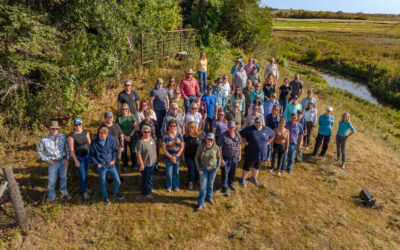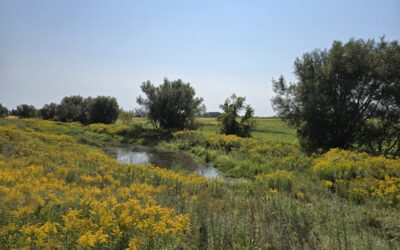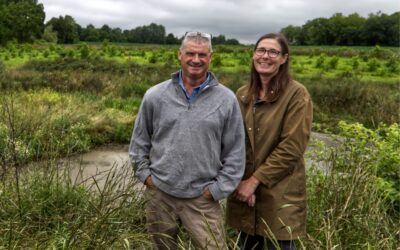Agricultural producers in Ontario continue to deliver vital ecological function with ALUS projects.
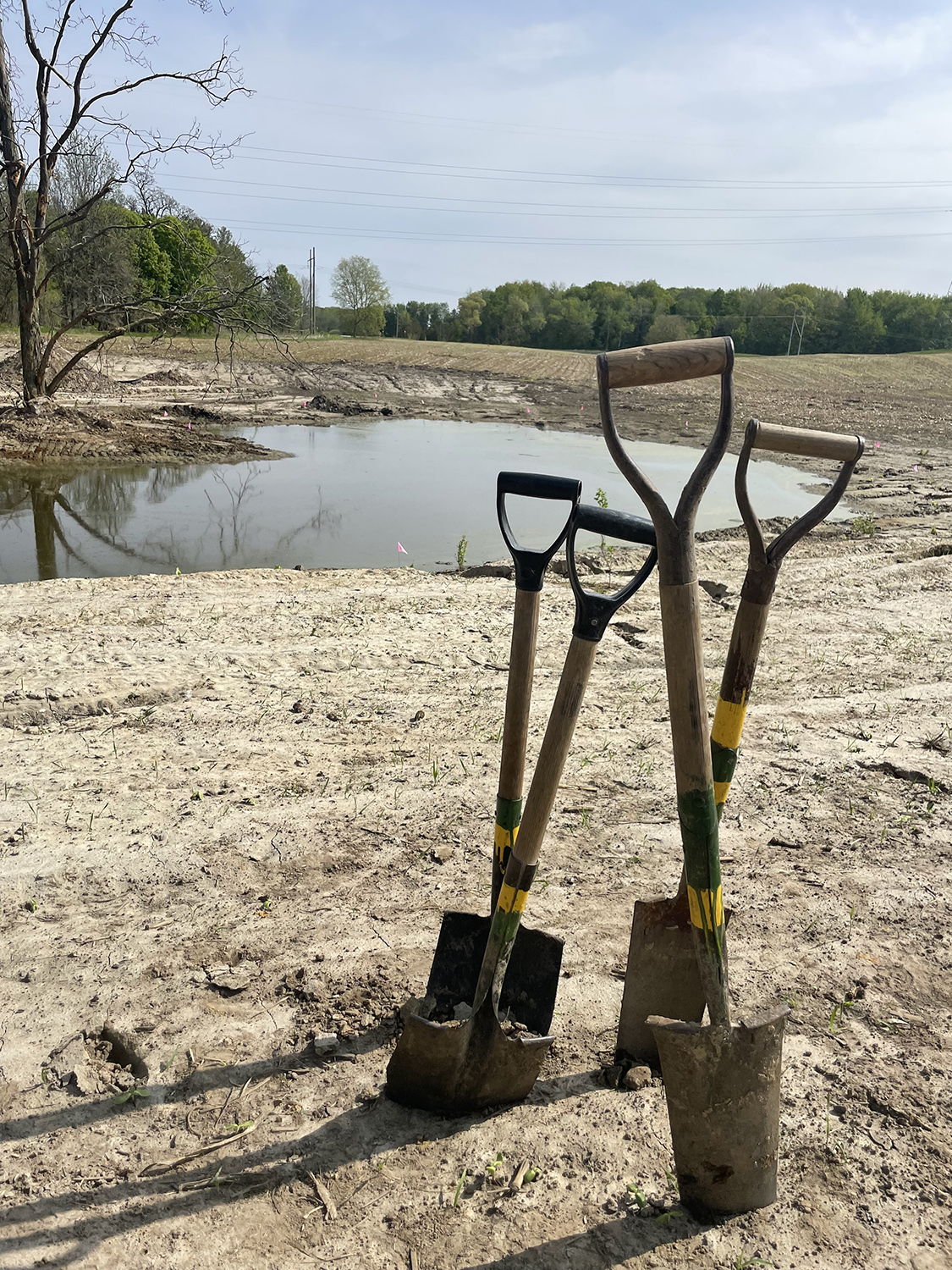
An ALUS wetland project under construction in Middlesex County, 2023. Credit: ALUS.
Toronto, ON — December 19, 2023
Funding from the Ontario Ministry of the Environment, Conservation and Parks supports farmer-delivered wetland creation by farmers participating in the ALUS Middlesex and ALUS Peterborough programs.
With the grant in the amount of $496,225, ALUS participants are able to deliver functional wetland ecosystem benefits for their communities and the environment.
“Our government continues to partner with ALUS to support farmers to enhance natural infrastructure through wetland enhancement and restoration initiatives in rural Ontario,” said Andrea Khanjin, Minister of the Environment, Conservation and Parks. “Wetlands provide economic benefits to farmers and rural communities to sequester carbon and mitigate drought and flooding.”
Wetlands provide crucial services to Ontario’s economies and communities, generating substantial economic value. Services delivered by wetlands include water filtration, carbon sequestration and drought and flood mitigation. A study from the University of Waterloo calculated the value of filtration services provided by Southern Ontario wetlands to be over $4 billion.
“Our government recognizes the important role wetlands play in climate change resiliency, flooding, and recreational opportunities,” said Graydon Smith, Minister of Natural Resources and Forestry. “This funding will help create new wetlands, which will benefit both farmers and the environment.”
ALUS participants are solution providers, leveraging their understanding of the landscape and nature to create nature-based solutions that target local environmental challenges, while providing value to their communities and the economy. Farmers benefit from participating in delivering these solutions, adding to their reputational and real value in society as producers not just of food and fibre, but ecosystem function.
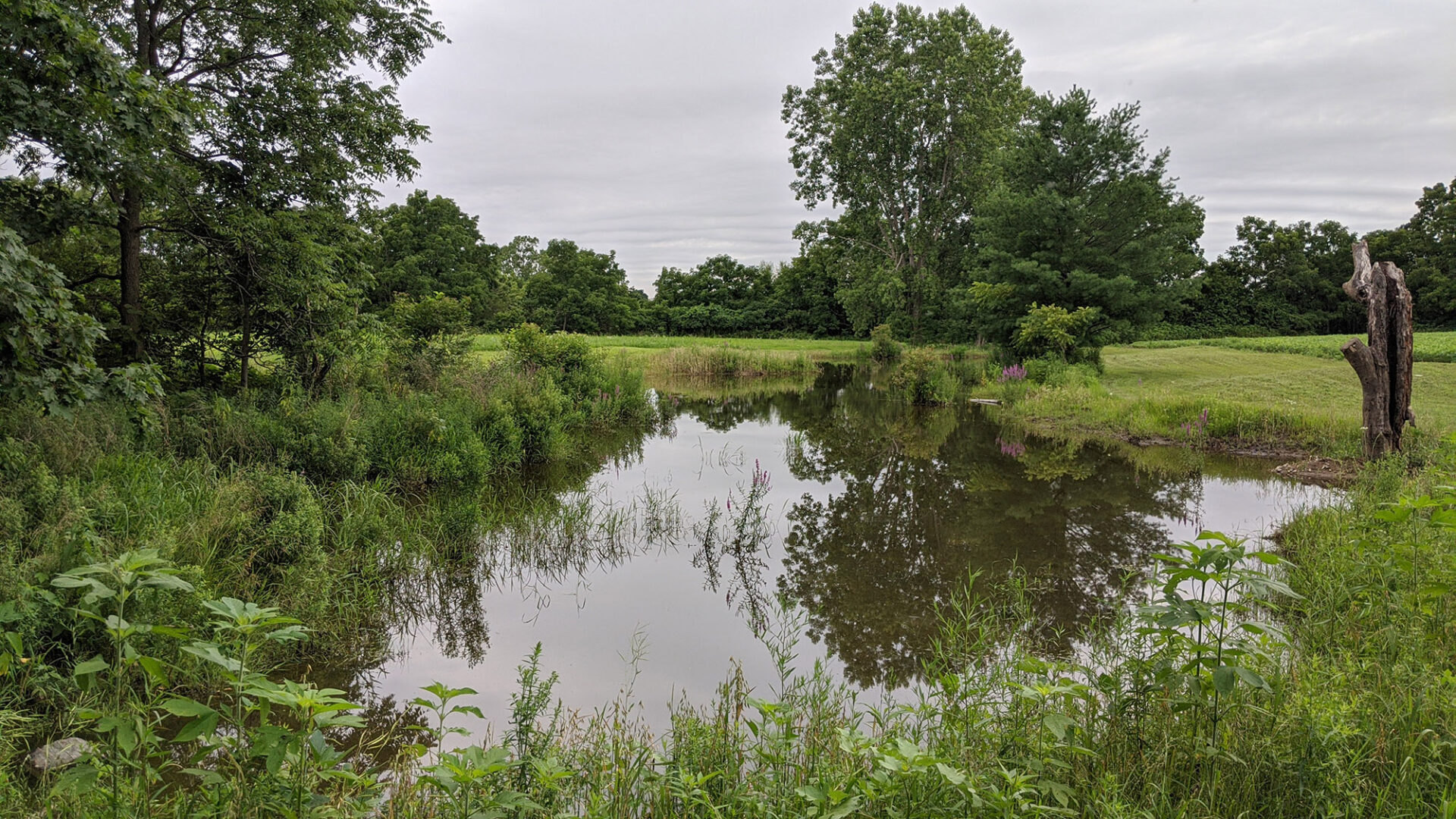
A functioning wetland ecosystem on a farm in Middlesex County.
“Farmers continue to impress me with their ingenuity and willingness to get things done,” says Alyssa Cousineau, Senior Hub Manager, Great Lakes, for ALUS. “Since I’ve worked with ALUS, I’ve had the opportunity to watch the network of farmers delivering vital nature-based solutions grow. Such growth is driven in part by supporters like the Ministry of the Environment, Conservation and Parks and Minister Khanjin.”
More than 800 farming families in Ontario are managing over 4,500 acres of wetland ecosystems. Each ALUS project is selected by a local Partnership Advisory Committee comprised of local farmers and other subject matters experts. This locally driven approach to environmental resilience and agricultural engagement is a unique offering of ALUS and is central to the success of the organization, its programs and participants.
About ALUS
ALUS is a national charitable organization that provides expertise, resources, and direct financial support to 38 communities across six provinces where more than 1,600 farmers and ranchers establish and steward nature-based solutions on their land. Through these solutions, they deliver ecosystem services to help sustain agriculture and fight climate change and biodiversity loss for the benefit of communities and future generations. Projects such as enhanced wetlands, windbreaks, riparian buffer zones, wildlife habitats, adaptive agricultural practices and other impactful environmental solutions produce cleaner air, cleaner water, greater biodiversity, carbon sequestration, erosion control, flood and drought mitigation, pollinator and wildlife habitat, and other ecological services.

